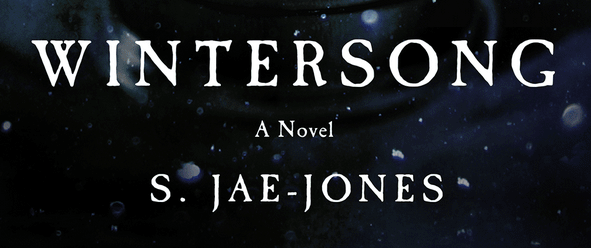I had Wintersong on my TBR for a while. I confess that I wasn’t so certain about reading this book and that’s the reason why I never picked up the book. Until now.

I started the book with no expectations, I knew few details about the plot and some rumors about being a Labyrinth retelling. I don’t really like retellings, and I never saw the movie, so I can say that my approach to the story was completely unbiased.
Let’s start with this : if I have to compare this story to another one, the first thing that comes to my mind is the myth of Orpheus and Eurydice.
The music is so central in this story, in what Liesl is, that THIS was supposed to be the main paragon. A girl going to the Underworld to save her sister with the aid of her music.
Liesl is a composer, overshadowed by her prodigious little brother. overshadowed by a culture that doesn’t consider a woman equal to a man even in musical pursuits. The setting is XIX century Europe, between Germany and the Austrian Empire, it’s the time of Mozart, the time of great musicians and performers.
The Music is the third main character, and has to be treated as one. Music, to me, is poetry. Poetry without words, who must be listened with the heart, with the soul. Music is more than art, it’s magic. True magic.
Reading Wintersong, I had the feeling of being in a dark fairytale, not very different from one of Tchaikovsky’s compositions (I listened to the Nutcraker while I was reading it, maybe that’s why I have this impression), and a few times in my mind I imagined the characters dancing instead of talking, thanks to the beauty of the writing. S. Jae Jones writing is enchanting, lyrical, perfect for a story driven by music, passion and emotion.
Music.
Passion.
Emotion.
That’s what Der Erlkonig wants from Liesl, that’s why he employs every trick, every illusion, every magic at his disposal to draw Liesl to his kingdom. Even her sister.
The goblin king is character that surprised me. At first I thought he was a kind of puppeteer, someone who plays with the lives of young girls (in this case, Liesl and her sister Kathe) for boredom and amusement. And then, in the second part, we, alongside with Liesl, no, with Elisabeth, learn to look through his many facades. we discover a man trapped in Der Erlkonig, a man who may be the Goblin King but at the same time is their servant, owned by the goblins and the entire Underworld. A man whose only comfort is prayer. This King worships God with a devotion and such a pure love that i was really moved. There is a melancholy in him, some kind of desperation hidden so much that only in his prayers we see a glimpse on who he really is.
Liesl. Elizabeth. Dear girl, What i think of you? I dont’ have a precise opinion on her. There are sides of her that i love (aside from the music, i swear!) and sides I didn’t like. I’m not a fan of characters who point out their ugliness every two pages (yes, Alina, I’m talking about you) and surely the fact that Liesl always compares herself with her beautiful sister Kathe wasn’t appreciated. I hate the beauty vs intelligence trope. Why they cannot be both? I understand that the concept was to promote the beauty inside Liesl, but I’ll never accept that kind of comparison. Liesl has courage, and hope, and love. We see all that when she runs to save her sister. I love her for this. I just want her to appreciate herself, be proud of what she is, and not only musically.
I enjoyed the ending so much. It fits the characters, it was as beautiful and moving as the entire story. I don’t want to spoil it, but I cannot wait to see what comes next in Shadowsong.
My rating : 3.5 stars
